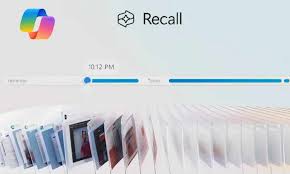
Microsoft Recall is Back
For years, we’ve clung to the idea that privacy still exists in the digital world. But the lines have blurred so much that it’s now fair to ask—is privacy even real anymore? With Microsoft Recall re-entry, that illusion fades further. The company has begun rolling out its new AI feature called Recall, which quietly takes snapshots of everything you see on your screen—every few seconds. These images are stored locally and let users search their digital past like flipping through a photo album.
Sounds helpful? Maybe. But also, deeply intrusive.
A New Kind of Digital Memory
Recall is part of Microsoft’s Copilot+ AI experience, aimed at creating a more seamless computing experience. It captures regular images of your activity—documents, messages, emails, even websites you visited days ago. The idea is to let you rewind your digital life and find something you saw, but forgot where.
So, if you glanced at a dress online or read a PDF two days ago, Recall helps you locate it instantly. It’s your computer’s memory, upgraded.
But the problem is: it remembers everything.
Where Privacy Begins to Fade
Every screen you see might be captured—including private messages, financial data, or personal conversations. Microsoft says Recall works like taking screenshots, except now it happens automatically, in the background, without a second thought.
Privacy experts aren’t convinced this is safe. Dr. Kris Shrishak, a long-time critic, once called it a “privacy nightmare.” He admits the opt-in feature is a slight improvement. Still, he warns: “Information about other people, who cannot consent, will be captured and processed.”
In short, your Recall becomes a diary of everything you’ve seen—even if you didn’t mean to remember it.
Microsoft Tries to Calm the Storm
Microsoft has responded to the criticism. It says Recall data is not shared with Microsoft or anyone else. Everything is stored locally, and the feature requires identity verification before you can access your snapshots.
Users can pause or stop the tool anytime, and they can delete any saved images. Plus, private browsing sessions and selected apps can be excluded from snapshots.
So yes, some control exists. But the very fact that such a powerful memory tool exists should give us pause.
Not Everyone’s Getting It—Yet
For now, Recall is available only to Windows Insider testers with compatible Copilot+ PCs. A global rollout is coming, but the European Union will have to wait until late 2025 due to strict data privacy regulations.
The UK’s Information Commissioner’s Office (ICO) has already been watching. Microsoft claims it made “a series of changes” after early feedback. But the ICO says it will continue assessing the tool’s impact before the full launch.
That alone shows how serious the implications are.
The Bigger Question: How Much Should Be Remembered?
Microsoft Recall is a useful yet unsettling reminder: every tech advancement comes with a trade-off. While it promises productivity, it also nudges us toward a world where everything is remembered—automatically.
What happens to disappearing messages when Recall stores them? Or confidential info you only glanced at for a second? These moments were once temporary. Now, they’re just another file waiting to be searched.
Privacy in 2025: A Line Too Easily Crossed
In today’s world, privacy isn’t just being lost—it’s being redefined without consent. Technologies like Recall are designed to help us—but they also reshape our expectations of control over our digital lives.
Microsoft isn’t alone in this shift. Many tech giants are leaning into data-rich features, often with opt-ins and safeguards. But in truth, once a system has access to everything, the balance of power subtly shifts.
That’s why this isn’t just about one AI feature. It’s about how modern technology slowly chips away at the idea that our data belongs to us.
Final Thought: Is Convenience Worth the Cost?
The Recall feature offers a peek into a future where forgetting becomes optional. But while machines may not forget, humans should still have the right to decide what’s remembered—and what’s not.
But if we don’t question tools like Recall now, we risk losing what little control we have left.
